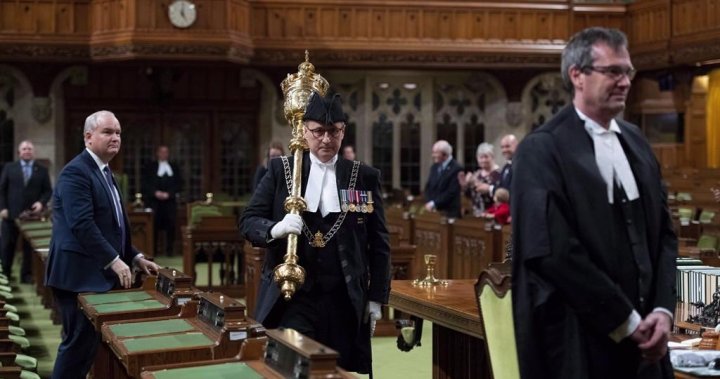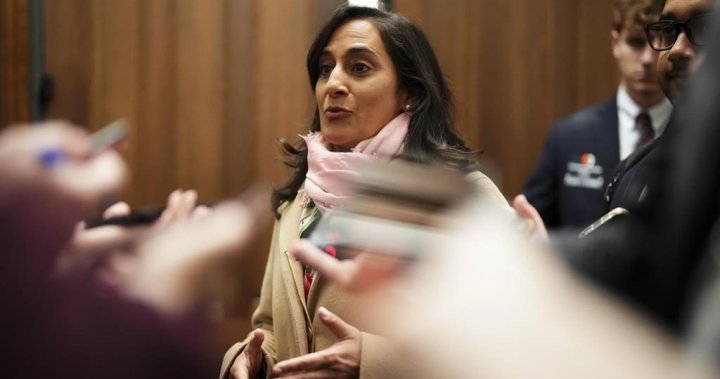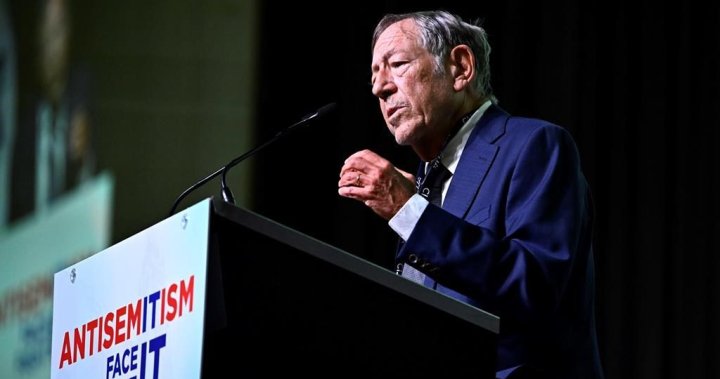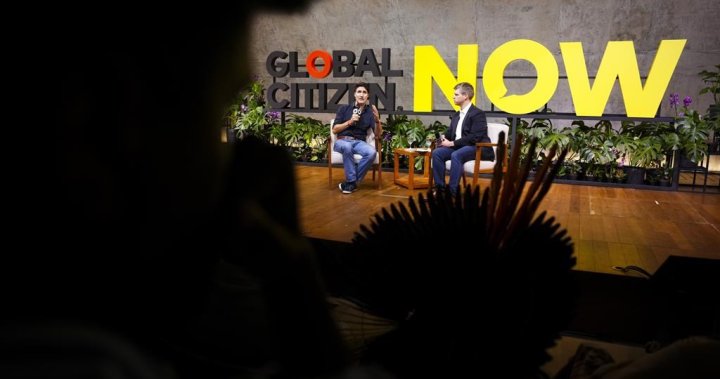‘Handful’ of people barred from House of Commons roles over foreign influence concerns – National

A senior House of Commons security official has said two potential staffers have been refused jobs in parliament in the past six months because of concerns about foreign state influence.
Patrick McDonnell, the sergeant-at-arms and head of security for the House of Commons, told a federal inquiry Tuesday that he refused to hire a “handful” of people over the past five years because they were suspected of being influenced by a foreign state.
McDonnell also told the foreign interference commission that there has also been a sharp increase in secondary interviews with job candidates, known as “doubt resolution” interviews, in recent years.
Background screening interviews are conducted when preliminary security and “loyalty to Canada” investigations raise questions about a potential employee. McDonnell or his team meets with the candidate to clarify any lingering questions about his or her background.
“The number of people interviewed has increased significantly. I believe in 2019 we conducted 10 doubt resolution interviews. In 2023, it will be about 128,” McDonnell said.
McDonnell was first appointed Sergeant-at-Arms in 2019, a federal cabinet appointment, and was reappointed earlier this year. The position carries a number of ceremonial duties, but he also works with the Parliamentary Protective Service to provide security for the House of Commons.

Get the latest national news
For news that impacts Canada and the world, sign up to receive breaking news alerts directly when it happens.
McDonnell was speaking at the second phase of the inquiry, led by Quebec Court of Appeal Justice Marie-Josée Hogue, into the ongoing issue of foreign interference in Canada’s democratic institutions.
Hogue has so far determined that while the 2019 and 2021 general elections were marked by foreign state influence campaigns, those activities did not compromise the integrity of the results. In both elections, Hogue concluded earlier this year, it was Canadians who determined the winning party.
But its preliminary report, released in May, concluded that a handful of candidates in the 2019 election “appeared willing” to accept help from foreign states. And the alleged foreign interference operations were not limited to political candidates.
The Hogue investigation found that a group of “known and suspected” People’s Republic of China (PRC) affiliates were working to advance Beijing’s interests, and that the group had a “direct connection” to 11 political candidates and 13 political staffers.
Some of these candidates and their staff members “appeared willing to cooperate in activities related to foreign interference, while others appeared unaware of these activities because of their clandestine nature.”
Parliament Hill staffers perform a variety of duties for their MPs and senators: they answer calls from constituents, manage politicians’ offices and schedules, and attend meetings or interviews. Because of the sometimes grueling nature of their work, they generally occupy a trusted position in Ottawa’s political circle.
This can make it an attractive target for foreign actors seeking to influence Canadian politicians.
They also undergo security screening by the RCMP and the Canadian Security Intelligence Service (CSIS) before being hired and given access to parliamentary networks, McDonnell told the inquiry.
The RCMP conducts a criminal background check on all job applicants, while CSIS conducts a “loyalty to Canada” check. New hires are also vetted based on any publicly available information that investigators can unearth, also known as “open source intelligence.”
“Investigations into loyalty to Canada involve examining an individual’s background over the past five years. These investigations can be challenging, particularly if the candidate has resided outside the country, is new to Canada, or is from a country of concern to Canada,” reads an interview summary released by the investigation Tuesday morning.
If there are any concerns or incomplete information from the new employee, McDonnell’s office may request a second “concern resolution” interview to “ensure they are taking appropriate steps to protect their networks and institutions.”
The current phase of the Hogue inquiry is expected to continue until October 16 and will hear more testimony from senior security and intelligence officials, senior civil servants and cabinet ministers, including Prime Minister Justin Trudeau.
Hogue has until the end of the year to produce a final report on foreign interference in Canadian elections.
© 2024 Global News, a division of Corus Entertainment Inc.



















